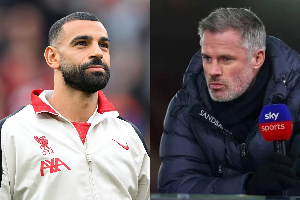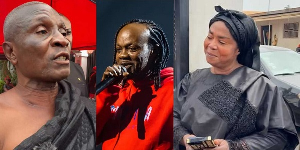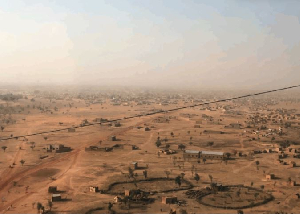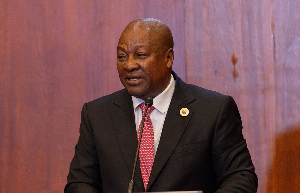Accra, Nov. 6, GNA - The National Democratic Congress (NDC) on Thursday said regular and reliable sources of public funding of political parties was an antidote to keep anti-democratic forces from hi-jacking the country's democracy.
"It would enhance a party's own credentials for democracy particularly through fair and meritorious process devoid of undue influences exerted by major donors," Dr Nii Josiah-Aryeh, NDC General Secretary, said at a day's symposium organized by the Institute of Economic Affairs (IEA) in Accra.
The symposium under the theme: "Party Perspective on the Public Financing of Political Parties," was attended by representatives of the NDC, New Patriotic Party (NPP), Convention People's Party (CPP), People's National Convention (PNC) and the Great Consolidated Popular Party (GCPP).
Dr Josiah-Aryeh, who supported public funding of political parties, used five principles of transparency, efficiency, inclusion, democracy and accountability to advance his point.
He said, "as we embark on the present political project, it becomes imperative that we put underpinnings in place as early as practicable to ensure a healthy and competitive political environment.
"For these to work and to guarantee worthy returns from publicly-funded political parties, it is necessary that we ensure transparency in their operations".
The NDC General Secretary said forces against transparency were formidable and derived ultimately from the sources of financial power within a political party.
He said, "transparency would enhance and facilitate democracy within the political organizations leading to efficiency; however, the price that we might pay for inefficiency was frequent instability and lack of social and economic prosperity".
Dr Josiah-Aryeh said public funding would also enhance internal democracy, as members would tend to have equal and full opportunity for listening to and learning about important issues affecting the party. "It is evident that these advantages are usually lost when sources of funding are concentrated within few hands in the party. Such personalities tend to determine the agenda, promote their own prot=E9g=E9s and favourites, frequently beyond their abilities thus threatening the internal democracies of the party", he said.
Dr Josiah-Aryeh noted that to ensure public confidence in funding political parties, they must be accountable.
He said parties were under-resourced and thereby under-perform as they were compelled to concentrate their resources around election campaigns and undertake little real activity for a sharper understanding of the most vital national issues and the development of appropriate policies.
Dr Josiah-Aryeh said the poor financial position of the parties had affected their capabilities to recruit people with the requisite calibre, retain quality staff and establish modern communication network between national, regional, district and ward levels.
He noted that internally generated funds were not adequate for effective operations of the parties, "there is no realistic chance within this country of raising the staggering sums available to parties in the more developed democracies for purposes of political campaigns." The General Secretary of CPP, Professor Nii Noi Dowuona said the state support for parties since 1992 had been negligible and called for more support.
He said what was needed was the commitment by Government to put in place the necessary legal framework to set up the fund. Prof Dowuona said the survival of the country's fledging democracy far outweighed the cost of support for political parties from public funds because parties were the engines of constitutional governance. Other speakers were, Mr Dan Lartey, Leader of the GCPP and Mr Gabriel Pwamang, General Secretary of the PNC. They all supported the State funding of political parties.
Politics of Thursday, 6 November 2003
Source: GNA












